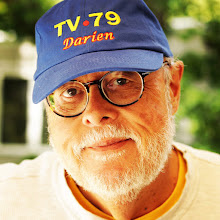Bulldog - Part 2: New Media vs Old... and Crisis PR
BULLDOG – Part Two
More tidbits from this week’s Bulldog Reporter media relations conference in NYC…
NEW MEDIA:
Media commentator Bob Garfield’s (NPR’s “On the Media”, Ad Age, USA Today) presentation, “The Chaos Scenario: What Happens When the Old Media Collapse,” made a fitting keynote kick-off to day two of the conference.
Garfield noted that, in an advertising-driven media world, the decline in network TV audiences will soon send advertisers running to new ways to reach audiences for their annual $250 billion worth of spending.
== Five years ago, American Express spent 70% of their advertising on TV. Now, 80% is spent off of TV.
== P&G, which spends $5.5 billion a year on ads, recently launched their Prilosec brand with 75% of their buys not on TV.
== Online search, with key-word ad placement by the likes of Google and Yahoo, now nets those firms $7 billion a year in revenues. (One client of mine, which specializes in key-word search ad-buy software, told me that major corporations “buy” up to five million key words to guarantee their ads reach eyeballs)
== CNN, which on a good day can garner 400,000 TV viewers, gets 5 million visitors a day to its website.
== Disney, despite owning ABC, is increasingly moving its ad dollars online… while recently announcing that it will give away its TV shows online.
Garfield doubted that advertiser-supported network TV can last. He claimed that low-cost reality shows that have been subsidizing more expensive shows like “Desperate Housewives.” “And how long can that trend survive?” As for “branded entertainment” shows, such as “Queer Eye”, he said their novelty quickly dissipates. “How many of you have seen a recent episode of that show?” One or two hands went up. “I mean, it’s embarrassing!”
Radio faces a similar fate. Garfield said that by 2020 even today’s hot techno-trend, satellite radio, will be gathering dust on a garage shelf as listeners migrate to digital media such as podcasts.
== Clear Channel’s market cap is $16.2 billion. But the cost of starting your own Podcast is $29.95, including tax. You don’t need an FCC license, studios or staff.
Strangely enough for advertisers, none of this decline network audience has meant lower rates. Rather than asking ad buyers to make an “up front” commitment to next fall’s TV series, someone suggested the “up-front” season should be for viewers who could vote with their pocketbooks for their favored programs.
Broadband penetration today is about 40% of the US and is predicted to climb to 60% by 2020. “But it will never be 100%, and that means that we’ll always have a two-class society in this country… those with (broadband and its programming possibilities) and those without.”
The implications of these trends to PR were obvious, but left unspoken. These are my views:
=== With declining TV viewership, such traditional vehicles as satellite media tours will prove ineffective. There’s already a reluctance of many stations to accept SMT’s and VNR’s, given last year’s disclosure that even Uncle Sam was using them to sell us government propaganda at taxpayer expense.
=== PR will have to double its staffing to pitch more and more niche media to reach narrower and narrower audiences. This diffusion will make our efforts less cost-efficient.
=== Younger PR staffers who have grown up with these new media will have tremendous advantages over us “grey hairs” who can barely program a VCR.
=== Niche media, by their nature, will be less interested in carrying PR’s messages, priding themselves on their independence and lack of hype. Their low start-up and operating costs will keep them honest.
One NYC PR giant recently launched a new beauty product by chartering a 757 and jetting a couple dozen influential beauty editors to a weekend spa retreat. It was expensive, but got them lots of ink…and reached their potential customers. Imagine trying to reach as many “consumers” thru hundreds of web site, Podcast and blog editors.
PR & HANDLING A CRISIS:
One of the best panels at the conference was on how to use PR in mediating a crisis.
The key panelist was Al Tortorella, Managing Director of Crisis Management for Ogilvy PR. Tortorella was introduced as the “father of crisis PR”, having worked with Tylenol on the 1982 tampering case. Among his observations…
When called in on a crisis, 75% of the time he’s found the accusations against his clients are correct. In a quarter of those cases, clients’ problems result from employee sabotage or involvement with sex, drugs or alcohol.
The first thing he does when called in to help is conduct research, never trusting management speculation or media coverage of the impact of the wrong-doing. Only by polling consumers can he gauge what’s happening… or decide what the public thinks should be done. “Ask them (consumers) and they’ll tell what the client should do to put things right.”
The best spokesperson for a company in crisis is “never the CEO”. His formula for a face for a company in crisis is quite simple:
· Always a woman
· She must be a doctor (though in what discipline, it doesn’t matter)
· She must have perfect English, but with a German or English accent
· When appropriate, such as for TV, she should wear a white lab coat
Tortorella says the media never “goes after” a woman spokesperson as aggressively as a man.
Asked about the inevitable tensions between “Legal” and PR during a crisis he said that PR should prevail.
“PR professionals use lawyers as an excuse (when they don’t act) because they don’t have any better ideas.”
Amen.

